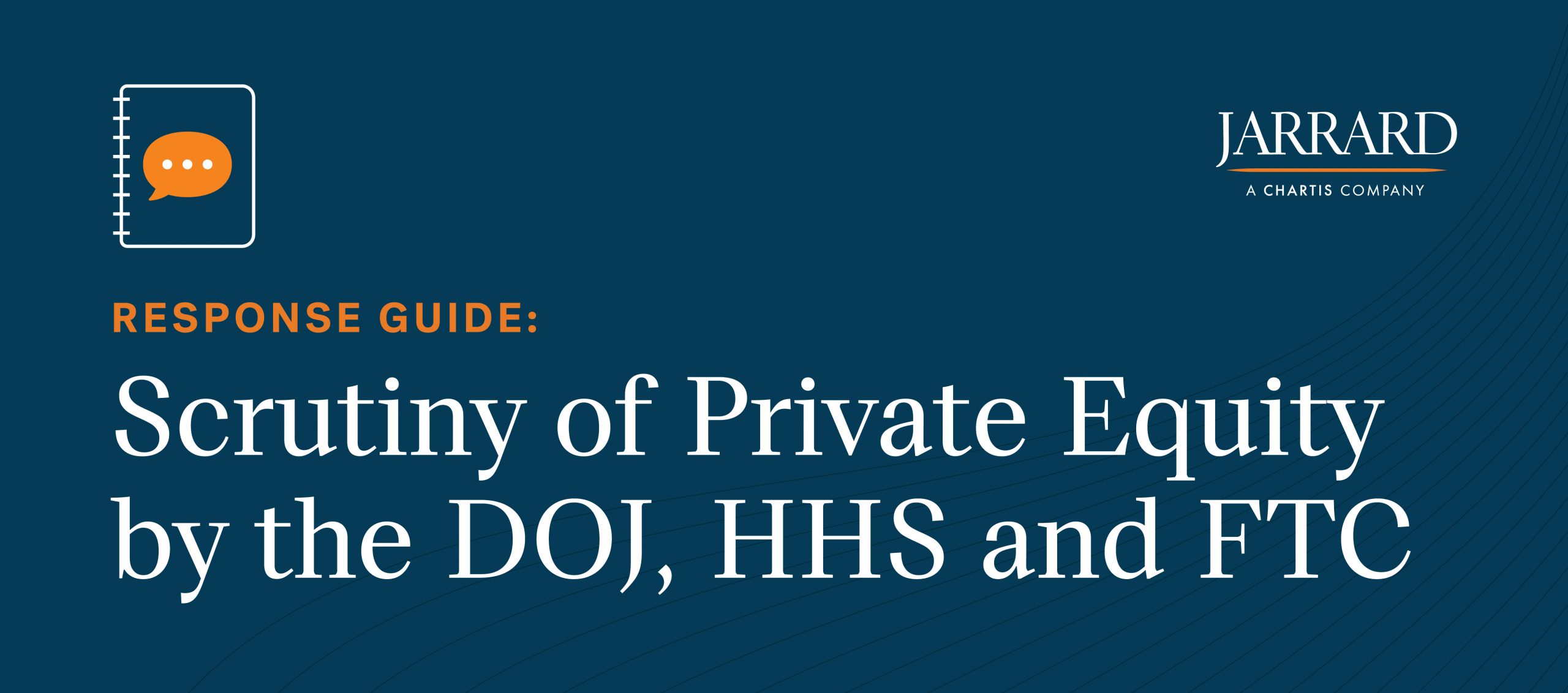In our recent piece, Healthcare Private Equity and the Cost of Silence, we covered how the pressure is mounting for more context and visibility into how private sources of capital are shaping our healthcare system.
With the window open for feedback on the government’s RFI until May 6, leaders are weighing the pros and cons of responding – especially given the public nature of that messaging.
If you choose to weigh in with a clear, responsible message, consider these ground rules:
- Know Your Audience: Constituents here are lawmakers with an agenda to simplify two extremely complex sectors of our economy – healthcare and finance – ultimately for the general consumer. And timing is arguably driven by the ensuing presidential election.
- Determine Your Messenger: Providers (physicians, nurses and clinicians) remain the most trusted voice when it comes to matters related to health, safety and care. Lean into that trust and choose your speaker wisely.
- Craft Your Story: According to our recent Consumer Survey, the bottom line is clear: As long as organizations provide good medical care, it doesn’t matter to the public who owns them – private equity or otherwise. This is your thesis. Your story needs to prove your right to serve through the impact you make and how the additional resources you provide have contributed to that work.
- Impact:
- Lowered overall cost.
- Increased overall quality.
- Expanded patient access
- Powered by:
- Investments in technology, clinical workflows, people development
- Scale that allows for efficient and effective operational improvements
- Partnerships through interdisciplinary collaboration to enhance quality, outcomes and experience
- Impact:
DOs
- Do know your audience
- Choose your messenger
- Keep your message clear and high-level
- Include metrics to support your thesis
- Use collaborative tone
DON'Ts
- Include sensitive information
- Mix messages, confuse the story
- Place blame elsewhere, shift responsibility
- Inflate favorable outcomes
The decision whether to respond to the government’s RFI is complex. As comments below suggest, there are risks to individual organizations speaking up in a formal way. Still, this moment is a reminder of a broader imperative: PE-sponsored providers need to be sharing their positive story about the impact smart investments in healthcare can have on the house of medicine.
Providing testimony is one thing, working to inform public opinion is quite another. While the audience will be different – no longer lawmakers and regulators with a specific remit – the principles above still apply to telling your story more broadly to consumers.
We checked in with lobbyists, attorneys and deal advisors who are watching this issue closely to get their advice for leaders considering responding. Here are their thoughts.
Private equity is a political wedge issue. The Administration’s real concern is consolidation, market competition and the cost of healthcare generally. While the RFI and PE-specific transparency requirements may appear to be driving towards hemming in private equity, the end policy goals are to create additional guardrails for all healthcare transactions regardless of ownership.
First, consider keeping your head down and letting this storm pass. If that’s not an option because you disagree with politicization of PE in healthcare or you are concerned about bad policy outcomes, engage expert help to help tell your story.
Be specific and thoughtful with the responses. While legitimate concerns certainly exist with some aspects of private equity/ for-profit organizations’ involvement with the healthcare sector (particularly with payer-owned organizations), it would be inaccurate and counter-productive to the industry to describe that involvement as universally negative. On the contrary, the private equity/ for-profit sector’s contribution to the industry’s efforts to improve overall patient access and treatment is essential.
Try to focus on answering the main questions, and don’t get distracted with extraneous information. Don’t say anything that you don’t want publicly known as your position. Don’t say anything that you can’t back up with facts and data. Try to describe quality improvements, innovation, better employee benefits, etc. with sufficient detail to be meaningful. Above all, run any responses by experienced antitrust counsel prior to submitting.
Dispel the misconception that there is something inherently wrong with private companies investing in healthcare providers, when those investors can bring efficiencies that can benefit both the providers they purchase and their patients. It is unrealistic to think that healthcare providers can operate outside of the commercial marketplace, which seems to be what the government is suggesting. There are no pitfalls to defending the investment thesis as consistent with high-quality patient outcomes.
I would be very hesitant to encourage an organization to respond individually. Trade groups, geographically similar affiliations, etc. would provide a more “anonymous” method of input. Any organization needs to consider the broad constituents both at the government and in the private sector that will have access to not just what is said but who said it.
With both private equity and payer acquisitions on the rise, focusing on one gives a potential regulatory benefit to the other (keeping in mind that payer is also expanding its venture investments as well). Also painting with a broad brush oversimplifies the issues and fails to recognize that there are good and bad actors in all sectors.
Is making operations decisions in healthcare purely based on profit appropriate? No. But is not being aware of data or having low quality due to lack of innovation and discipline appropriate? Also no. And will the government parse these complex issues out and develop improved oversight based on an RFI? Also, definitely no. So, it is a balance of whether to share perspectives (at your own peril) or instead let the loud anti-voices respond while the industry remains silent. Tough call for sure.



